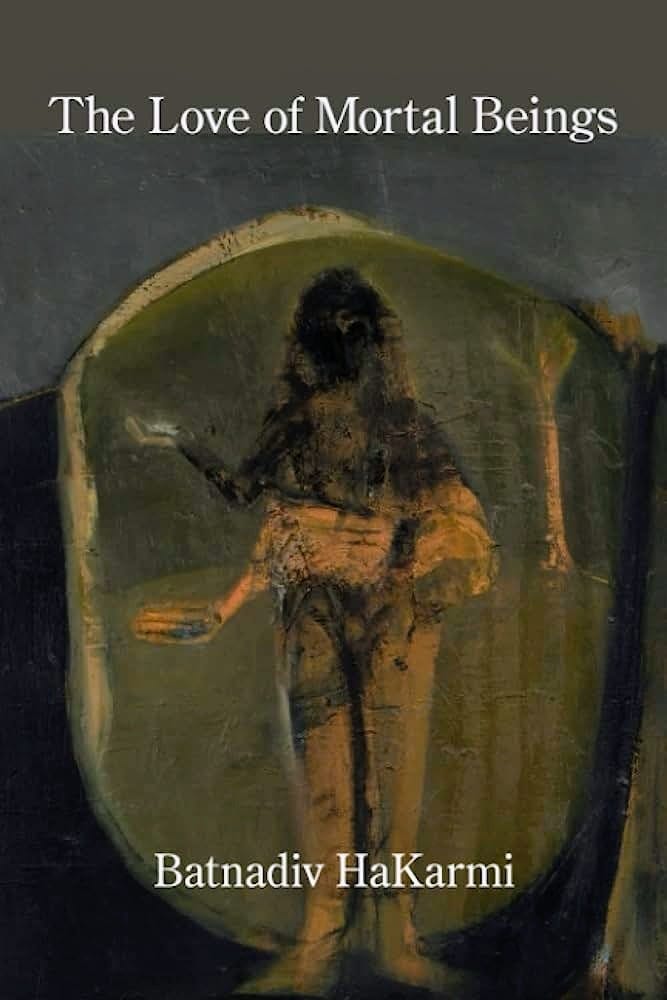Remembering the Lost World of Europe’s Jews
Book Review: ‘The Love of Mortal Beings’, by Batnadiv HaKarmi
Earlier this year, Batnadiv HaKarmi, a writer and visual artist born in the United States and now based in Jerusalem, published a book of poems, The Love of Mortal Beings, which examines, through the prism of her grandparents, the Holocaust and Jews’ attempts to build new lives after their world in Europe had been so thoroughly destroyed.
The rise of the Nazis that culminated in the Shoah is now one of the few shared memories for everyone in the West, which probably more than any other polices the boundaries of morality, personal and political. The ubiquity, however, comes with superficiality and a dulling of the sense of what was lost. Part of the reason for this is that the nearly ten million Jews in pre-1933 Europe were concentrated overwhelmingly in the East, an area still somewhat absent in the Western popular imagination of the Second World War, despite it being where the Nazi designs were focused and where the bulk of the fighting took place. Jews have always been a small minority in Western Europe, albeit one with outsize achievements, but in the East the creation and functioning of cities like Vilnius and whole countries like Poland were impossible to explain without reference to their Jews. Then, suddenly, after hundreds of years, they were gone.
HaKarmi restores some part of the voice of those were silenced. The nineteen poems are not narrative poems, but they do form a narrative of the struggles her grandparents faced, as the descent came and then what to do having survived it.
There is the deprivation and the hunger; the constant struggle just for bread. Facing the choice of staying or leaving, where either is likely to result in death. The disappearance of sons and mothers and friends as the Einsatzgruppen move in. The women killed by starvation in the sieges and the men killed trying to hold off the Nazi juggernaut. The bodies never found.
In the new world, there is the alien demand to feed the baby with “scientifically designed” formula and having to wait for a Russian-speaking doctor who quietly colludes as things are done the traditional way. The couple’s contest to name the baby. The haunting memories as the children grow and reach the ages of people who did not survive. The inability even a decade later to get used to having bread in abundance. Agonising over forgiveness at the end.
While several of the poems specifically relate to HaKarmi’s grandparents’ questioning of God—a widespread sentiment among Jews that began even before the end of the war—the binding thread of the whole anthology is the Tanakh. Some of the references are overt, for example to Jacob and Isaac, to King Saul and David. And HaKarmi provides a notes section to explain some of the allusions. But this can only take an unfamiliar reader so far; the Biblical substance is far richer and more pervasive than that.
With the onset of the “Holocaust by bullets” now eighty-two years in the past, it is important that the memory of the Nazi campaign to annihilate European Jewry not be allowed to fade nor to become sanitised into an abstraction. HaKarmi’s book is an excellent, devastating antidote to this, restoring the individual humans who were starved, clawed through the mud, and had to live with never knowing where their relatives had ended up. HaKarmi at one point describes her grandfather unable to push from his mind leaving his mother for the last time: “Sometimes he could feel her tears, stinging his dry eyes”. All readers will get a sense of this.


